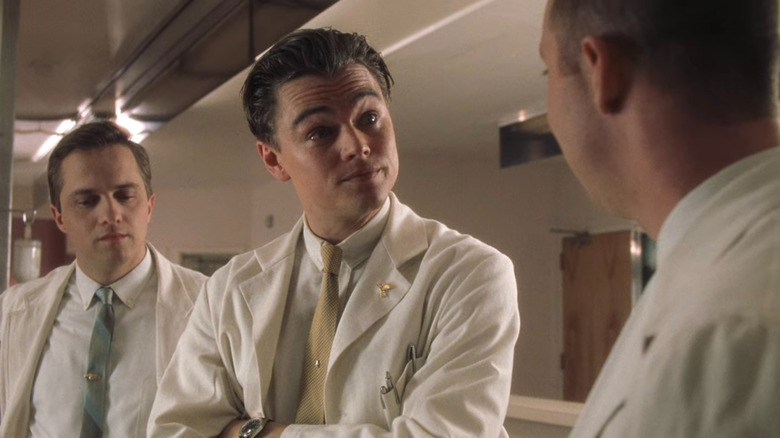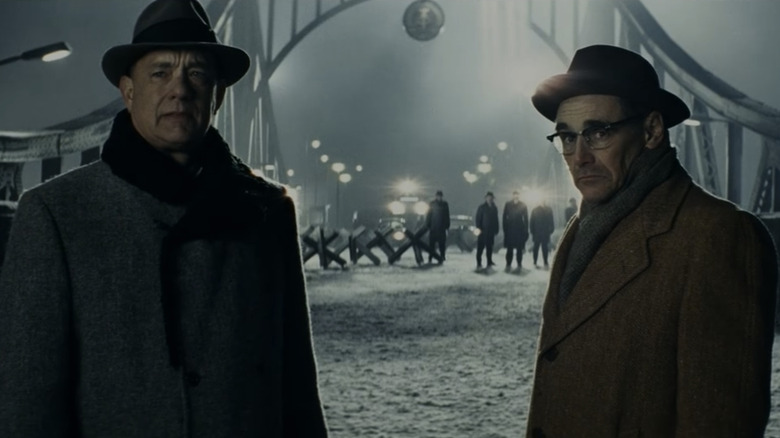Steven Spielberg Knows A Movie Is Good When He Forgets Steven Spielberg Directed It
One of the more mysterious parts about being a filmmaker is knowing when what you have works. You have been thinking about and crafting a film for years, fixating on every single detail possible. It can be incredibly easy to be swallowed up in the process, a classic missing the forest for the trees scenario. Oftentimes, you can take certain elements of a film for granted because you instinctively know them but have not properly conveyed them to the audience, and they are the ones the movie is ultimately being made for. Some filmmakers value test screenings for this reason, putting it in front of an audience and adjusting things based on their feedback. Others completely swear off said screenings, seeing them as deterrents for creating something singular. Both have their merits, and both have their issues.
Even with all that testing and tweaking, how do you know when it is done? Sure, sometimes you just literally run out of time because the studio has imposed a deadline or you need to get it submitted for film festival consideration. Beyond that, though, when can a filmmaker be satisfied with the movie they have made and be able to let go? The question is even more fascinating in regards to our greatest filmmakers, like Steven Spielberg. For someone who has directed at least one bona fide masterpiece every decade since the 1970s, it takes a certain commitment to one's self-assurance as a craftsperson and artist to have that kind of exceptionally consistent career. You know a Spielberg film when you see it instantaneously, and when his style is firing on all cylinders, few things are more pleasurable in a theater. But for Spielberg himself, the joy comes from not seeing himself on the screen.
Separating the artist from the audience member
I cannot imagine a filmmaker being able to distance themselves from their own work. With the amount of time and energy spent devoted to one picture, every frame of the movie will be tinged with some other thought — how hard it was to get the right light for a scene, seeing something unexpected in a performance, or just remembering a bad meal you ate. But if you are going to be a great director, you have to remove yourself from the equation; otherwise the film will drive you insane. For Steven Spielberg, being able to remove his experience from a movie is key to knowing if it's actually any good. Speaking to Time, he explained:
"[I]f I can forget I had anything to do with the picture, and I'm halfway through the movie and I'm just the audience, then that is my litmus test for a film working ... [T]he first time I run a picture that I've directed for myself, if I'm aware to the very end that I'm the director, and all I can do is find things to fault, then I know I have my work cut out for me. And I have to roll up my sleeves and fix everything. But when I can watch a movie and I can forget that I made the movie, that's the first sign that I'm going to be pretty happy with it."
Spielberg's ability to do that truly warms my heart. This man is in his 70s and has decades of filmmaking experience behind him, yet he can still be wrapped up in a movie like the rest of us — even with one he made. No wonder he has never lost that spark as a director.
A wrinkle in the art vs. artist debate
We often debate whether we're able to separate an artist from their art. Generally, this is in reference to wondering if it's okay to like a film, book, album, or anything else if they're made by a reprehensible person. I don't think there will ever be a definitive ruling on what to do about it, and my personal belief ebbs and flows with time. But this anecdote by Steven Spielberg had me thinking about it in another context. He knows he has a winning picture if he can forget he was the one who directed it. Is a film better if we forget that, too?
Film discourse is incredibly auteur-dominated, speaking about films through the prism of their directors. I, admittedly, do this quite often. However, when I'm watching a movie by a director I love, I'm never thinking about the person who made it. The connection only happens thinking back on the movie. If I watch Greta Gerwig's adaptation of "Little Women," I'm experiencing the movie as a piece about the March sisters. It's not until after the credits roll that the connections to "Lady Bird" and other Gerwig projects enter my mind.
A movie itself needs to envelop you in its world and intrigue you with its characters. Seeing the director work while I'm watching the movie makes it feel like an academic project and not an artistic experience. If it's meant as a Brechtian deconstruction of cinema, fine, but that's rarely the case. I think that is what gets Steven Spielberg going, too. Anything he does as a director needs to serve story, character, theme, and spectacle, pulling an audience (including himself) in. No wonder he has remained an invaluable part of American cinema for all these years.


